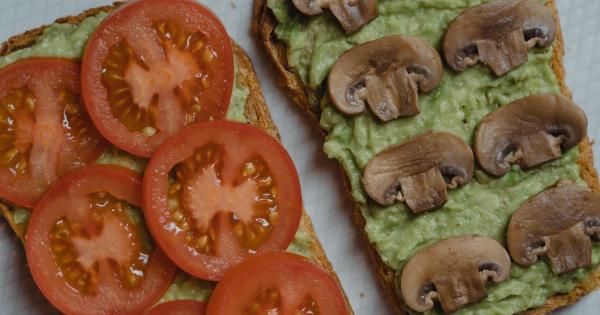Becoming a vegetarian is a life-changing decision. Vegetarians avoid meat and poultry products, and often maintain a plant-based diet. This lifestyle change comes with benefits, including weight loss, improved digestion, and lower risk of heart disease.
However, like any other diet, a vegetarian diet can also pose risks of chronic diseases. This article outlines the health risks vegetarians must watch out for and tips for avoiding them.
1. Vitamin B12 Deficiency
Vitamin B12 is essential for maintaining red blood cells, regulating the nervous system, and reducing the risk of heart diseases. However, vitamin B12 is mainly found in animal foods, such as meat, milk, and eggs.
Vegetarians must find alternative sources to fulfil their daily recommended amount of vitamin B12. Luckily, vegetarian sources of vitamin B12 include fortified cereals, nutritional yeast, and plant-based milk.
2. Iron Deficiency
Iron is crucial for haemoglobin function, a protein responsible for delivering oxygen to the body. Iron deficiency is common in vegetarians, particularly women, and can lead to anaemia, fatigue, and shortness of breath.
Fortunately, vegetarians can combat iron deficiency by incorporating plant-based iron sources, including spinach, lentils, tofu, and pumpkin seeds into their diet. Moreover, consuming iron-rich foods with vitamin C sources can increase iron absorption.
3. Protein Deficiency
Protein is essential for muscle growth and repair, as well as maintaining a healthy immune system. Many animal products including meat, poultry, fish and eggs are high in protein.
Vegetarians may find it challenging to get enough protein from plant-based sources. However, combining complementary proteins, such as legumes and grains, can provide all the essential amino acids required for optimal health.
4. Calcium Deficiency
Calcium is essential for strong bones and teeth, nerve function, and muscle movement. Many vegetarians avoid dairy products, which are a rich source of calcium.
However, alternative sources of calcium include fortified plant-based milk, tofu, leafy greens, nuts, and seeds.
5. Omega-3 Deficiency
Omega-3s are crucial for brain function, eye health, and fighting chronic diseases such as heart disease. Animal products, like fish, are a rich source of omega-3s.
However, vegetarians can consume plant-based omega-3 sources, such as chia seeds, flaxseeds, and walnuts. Additionally, supplements such as algae-based omega-3 supplements are available for vegetarians.
6. Zinc Deficiency
Zinc is crucial for immune system function, wound healing, and maintaining vision. It is found in animal-based sources such as meat and seafood.
However, plant-based sources like beans and legumes, nuts, seeds and soy products are also available as sources of Zinc.
7. Vitamin D Deficiency
Vitamin D is responsible for calcium absorption, dental and bone health, mood, and immune function. Sunshine is the main natural source of vitamin D. However, dermatologists recommend using sunscreen to protect against skin damage.
Vegetarians can also consume fortified plant-based milk and vitamin D supplement tablets to fulfil their daily requirement of vitamin D.
8. Sugar Intake
Sugar is a hidden ingredient found in many vegetarian processed foods, juices, and sodas. Excess sugar consumption can lead to metabolic disorders and increase the risk of type 2 diabetes.
Vegetarians should avoid high-sugar foods and opt for natural sources of sugar such as fresh fruits and vegetables.
9. Sodium Intake
Excess salt intake can increase blood pressure and the risk of heart disease. Vegetarian processed and packaged foods tend to be high in sodium.
Vegetarians should aim to consume fresh, whole foods and read the nutrition labels of processed foods before purchasing.
10. Constipation
Constipation is a common problem for vegetarians due to inadequate fibre intake. Fibre is essential for normal bowel function and reducing the risk of heart disease and diabetes.
Vegetarians can increase their fibre intake by consuming whole grains, legumes, fruits, and vegetables.
Conclusion
Vegetarianism can reduce the risk of chronic diseases when planned correctly. Nevertheless, vegetarians must plan their diets intelligently to avoid running into risks of deficiencies.
Exploring the various sources available to fulfil their nutritional requirements is a step in the right direction.































